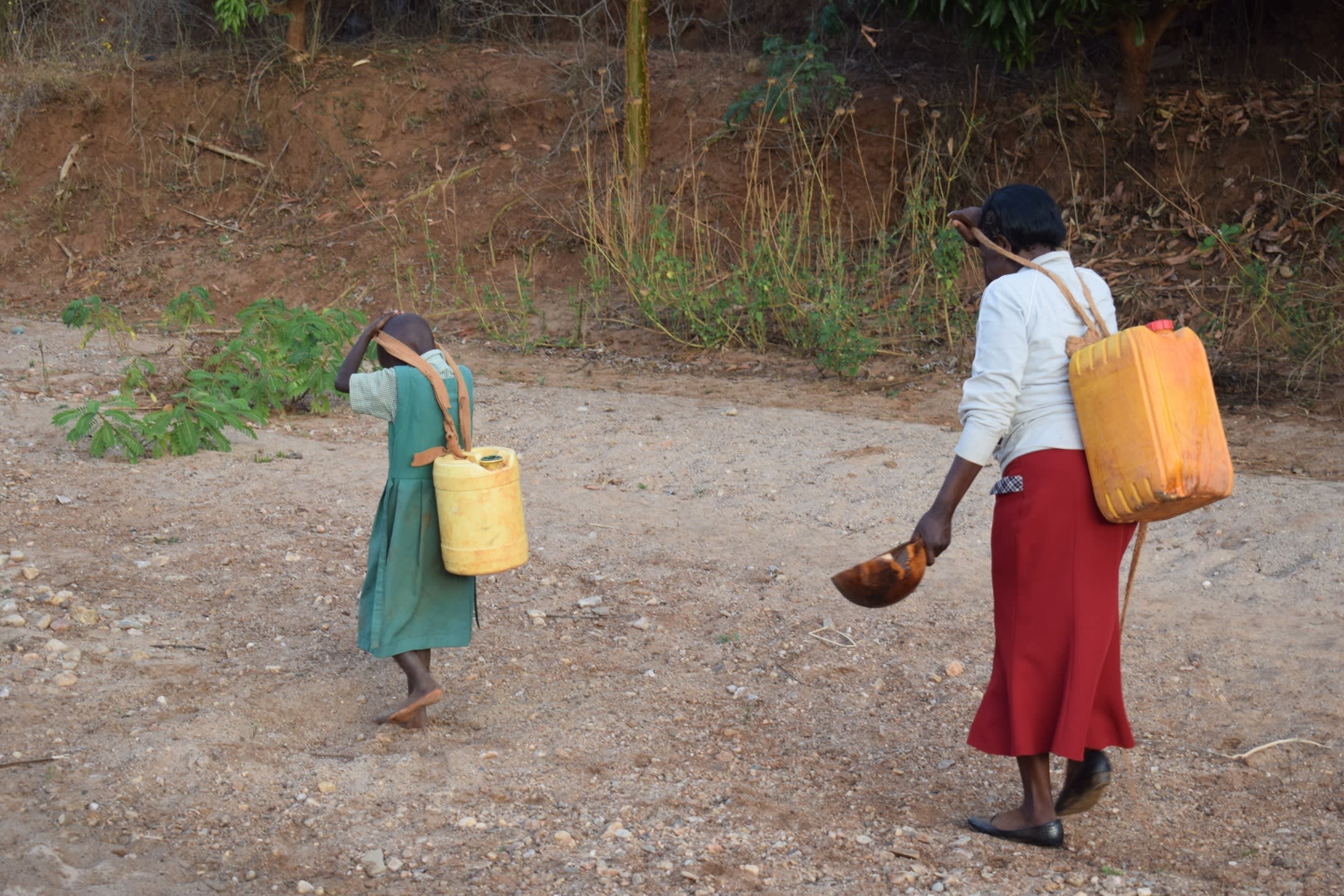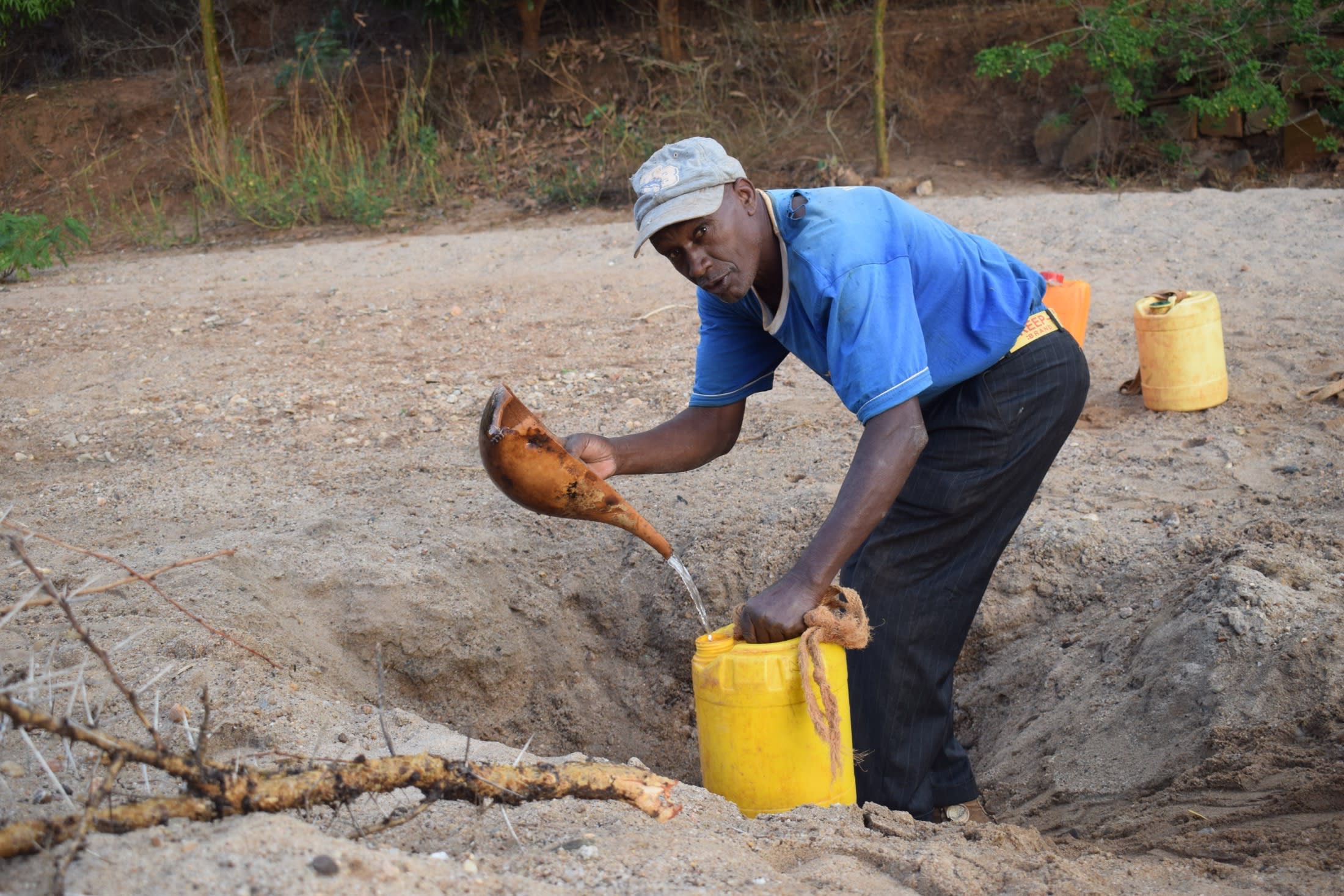Water scarcity is becoming a significant challenge for people in southeastern Kenya, including the 1,500 community members of Kilia, who rely on the Kaiti River for their water. Still, since most of the rivers in this region are seasonal, they only contain water for a limited time period.
Since there is a desire to be the first to collect water to allow time to accomplish other daily tasks, most people in Kilia start their days very early, so they don't have to wait in long lines due to overcrowding. But the journey for some can take up to two hours. Understandably, it is exhausting to walk that far and even more so to make the return trip with full water containers. The only other option is a sand dam and well in a neighboring community, but the trek to collect water from there extends even farther.
"I do not like the idea of being sent or accompanying my mother to the river all the time after I come back from school, as it is hectic at times because of the distance," said nine-year-old Ndinda N. shown below walking with her mother after collecting water.

When the limited rainy season is over and water is scarce, community members collect water from scoop holes dug in the riverbed. The drier it gets, the deeper the holes must be to access water.
Fetching water here is a tiring and laborious task, but the worst part is that the water they collect after so much hard work is contaminated. The holes are wide open, with people and animals alike drinking from them. The risk of contracting water-related diseases such as bilharzia, typhoid, cholera, and amoeba is high.
Most community members rely on subsistence farming for their livelihoods. This region has fertile soil for growing crops, but farming activities do not thrive without sufficient water.
Farmer Benson Kawinzi, 63, shown below scooping water, said, "Water scarcity affects me in such a way that I can't do things I am supposed to do. I spend a lot of time searching for water instead of focusing on other developments."

The people of Kilia need a well, so they have accessible, clean water near their homes. Having this access will allow them to farm, increase their incomes and hopefully have time to explore other areas of development.
Reliable Water for Kilia
Our main entry point into this community has been the Kyeni Kya Kiia Nzou Self-Help Group, which comprises households working together to address water and food scarcity in their region. These members will be our hands and feet in constructing water projects and spreading the message of good hygiene and sanitation to everyone.
Hand-Dug Well
This particular hand-dug well will be built adjacent to a sand dam project, which will supply clean drinking water once it rains. We have provided the group with the tools needed for excavation. With the guidance of our artisans and mechanics, the excavated well will be cased, sealed with a well pad, and then finished with a new AfriDev pump.
Excavation takes a month or more on average, depending on the nature of the rock beneath. Construction of the well lining and installation of the pump takes 12 days maximum. The well will be lined with a concrete wall including perforations so that once it rains, water will filter in from the sand dam.
This well will bring clean water closer to families.
New Knowledge
These community members currently do their best to practice good hygiene and sanitation, but their severe lack of water has significantly hindered reaching their fullest potential.
We will hold hygiene and sanitation training sessions with the Self-Help Group and other community members to teach essential hygiene practices and daily habits to establish at the personal, household, and community levels. This training will help to ensure that participants have the knowledge they need to make the most out of their new water point as soon as the water is flowing.
One of the most important topics we plan to cover is handling, storage, and water treatment. Having a clean water source will be extremely helpful, but it is useless if water gets contaminated when it is consumed. We will also emphasize the importance of handwashing.
The community and we firmly believe that all of these components will work together to improve living standards here, which will help to unlock the potential for these community members to live better, healthier lives.
We typically work with self-help groups for 3 to 5 years on multiple water projects. We will conduct follow-up visits and refresher training during this period and remain in contact with the group after all of the projects are completed to support their efforts to improve sanitation and hygiene.

 Protected Dug Well
Protected Dug Well
 Rehabilitation Project
Rehabilitation Project






























